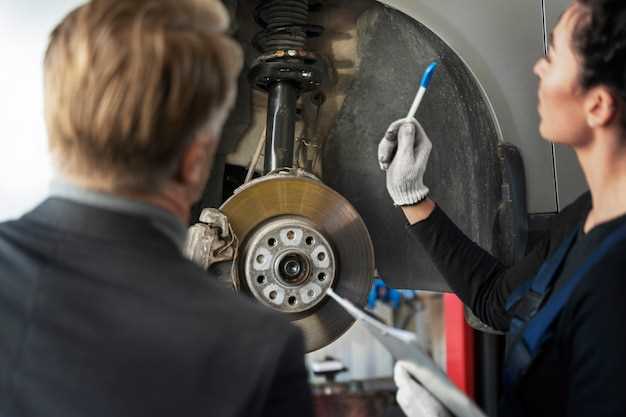How to maintain a marine engine for long-term use

When it comes to ensuring the longevity and efficiency of your marine engine, regular maintenance is paramount. Proper care not only enhances performance but also prevents costly repairs and breakdowns during your adventures on the water. A well-maintained engine can be your best ally, allowing you to enjoy the beauty of marine environments without the worry of unexpected malfunctions.
Understanding the intricacies of marine engine maintenance is essential for any boat owner. This involves a series of systematic checks and procedures designed to keep your engine running smoothly. From regular oil changes to monitoring the cooling system, each component plays a vital role in the overall performance of your vessel. Neglecting these tasks can lead to decreased efficiency and even complete engine failure.
In this article, we will explore practical tips and guidelines on how to maintain your marine engine effectively. Whether you are a seasoned sailor or new to the aquatic world, these maintenance strategies will equip you with the knowledge needed to ensure that your engine remains in peak condition, providing you countless hours of reliable service on the water.
Regular Oil Changes and Fluid Checks for Engine Longevity

Maintaining a boat’s engine is crucial for ensuring its long-term performance and reliability. One of the most effective ways to achieve this is through regular oil changes and fluid checks. The engine oil lubricates moving parts, reduces friction, and helps dissipate heat, preventing premature wear and tear.
It is recommended to change the engine oil at least once a season or after a specific number of operating hours, depending on the manufacturer’s guidelines. Fresh oil contains additives that protect the engine components and keep the engine running smoothly. As oil degrades over time, it loses its effectiveness, potentially leading to costly repairs.
In addition to oil changes, regular checks of other fluids such as coolant, transmission fluid, and power steering fluid are equally important. Ensuring that these fluids are at optimal levels and in good condition helps maintain overall engine health and performance. Insufficient coolant can lead to overheating, while old or contaminated transmission fluid can affect gear shifting and overall engine responsiveness.
Implementing a routine maintenance schedule that includes oil changes and fluid checks will significantly extend the life of your marine engine. This proactive approach helps identify potential issues before they escalate, ensuring that your boat remains reliable and ready for your next adventure.
Cleaning and Inspecting Fuel Systems to Prevent Contamination
Maintaining a clean and well-functioning fuel system is crucial for the longevity and performance of your boat’s engine. Contamination can lead to reduced efficiency, poor engine performance, and even damage to critical components. Regular inspection and cleaning of the fuel system can mitigate these risks.
The first step in maintaining the fuel system is to routinely inspect the fuel tanks for any signs of debris or water accumulation. Water can enter the fuel system through various means, including condensation or fuel transfer. It is essential to drain any water from the bottom of the tank and dispose of it properly.
Next, the fuel lines should be checked for cracks, leaks, or deterioration. Over time, fuel lines can become brittle or corroded, leading to potential fuel leaks that can not only harm the engine but also pose safety hazards. Replace any damaged lines promptly to ensure a reliable fuel supply.
Fuel filters play a vital role in maintaining the cleanliness of the fuel system. Inspect and replace them regularly according to the manufacturer’s recommendations. Clogged filters can restrict fuel flow, forcing the engine to work harder and potentially leading to damage.
In addition to visual inspections, it is beneficial to clean the fuel injectors and carburetors periodically. Using a specialized fuel system cleaner can help remove deposits and prevent clogs that can affect engine performance. Follow the instructions carefully to avoid any damage during the cleaning process.
Finally, always use high-quality fuel to minimize the risk of contamination. Poor-quality fuel may contain contaminants that can compromise the fuel system and the boat engine’s overall performance. Store fuels in clean, sealed containers and avoid mixing old fuel with new fuel to maintain optimal fuel quality.
Battery Care and Electrical System Maintenance for Reliability

Proper battery care is essential for ensuring the reliability of your boat’s electrical system and engine performance. Regularly checking battery connections, terminals, and overall condition can prevent unexpected failures while out on the water. Ensure that the terminals are clean and free from corrosion. Use a mixture of baking soda and water to clean any buildup, followed by rinsing and drying thoroughly.
Additionally, check the electrolyte levels in lead-acid batteries. Maintaining the appropriate level helps to prevent sulfation and prolongs battery life. If the electrolyte level is low, add distilled water carefully to bring it back to the required level.
Conduct regular capacity tests using a multimeter or a specialized battery tester. This will help you monitor the state of your battery and determine whether it needs to be replaced. Batteries typically lose capacity over time and frequent charging cycles can also contribute to decreased performance.
Inspect the wiring and connections in your electrical system for signs of wear or damage. Look for frayed wires or loose connections that could lead to failures or short circuits. Addressing these issues promptly can save you from more extensive repairs in the future.
Consider investing in a quality battery charger with built-in maintenance features. Automated chargers can maintain batteries at optimal levels while preventing overcharging. Regular charging, especially during periods of inactivity, ensures that your battery remains in good condition and ready for use.
Finally, ensuring that your battery is securely mounted and protected from moisture and vibration contributes significantly to its lifespan. Implement these battery care and electrical system maintenance practices to enhance the reliability of your boat’s engine and overall performance on the water.




